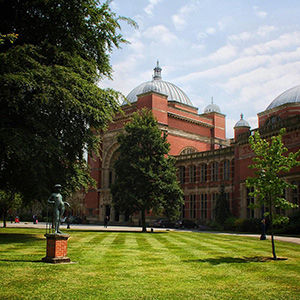Institutionalising citizenship in Ancient Greece
- Location
- Education Building, Room M35
- Dates
- Thursday 14 November 2019 (14:00-18:00)

Citizenship is a fundamental notion for our understanding of power dynamics within the Greek polis. Modern approaches to Greek citizenship, however, have long been at the centre of debate (see Duplouy 2018 for an overview).
A prominent view based on Aristotle’s definition of citizens as those who share in judicial and deliberative decision-making and political offices (Arist. Pol. 1275a22-24) sees the Greek polis primarily as a set of political and legal institutions and conceives of citizenship in terms of participation to these institutions (Hansen 1991; Hansen and Nielsen 2004; Fröhlich 2016). Similar conclusions have been reached by a series of scholars who, despite their different viewpoints, shared an anthropological approach as well as a (albeit non-exclusive) focus on the male, political dimension of citizenship (Loraux 1981; Manville 1990). These views have been challenged by a series of scholars who have proposed expanding our understanding of Greek citizenship. Some studies have appreciated the significance of participation in civic religion as a defining factor of citizen status and thus extended citizenship to Greek women as well as men (Blok 2017; Sebillotte Couchet 2018), while others have argued that citizens were all those born from resident parents, including metics (Cohen 2000).
This workshop builds on this fruitful debate and attempts to reconcile these conflicting stances. In particular, should we take the politico-institutional domain within the Greek polis as separate from the religious domain? Within the framework set out by the New Institutionalism, such a clear-cut distinction may not be necessary. This trend in political science provides a broad view of institutions as set of rules, practices and narratives that influence the behaviour of political actors (March and Olsen 1984; Lowndes and Roberts 2013). According to this definition, institutions encompass all aspects of the life of a community, from the political to the social, financial and religious spheres. This event therefore brings together four international scholars in an informal environment and aims to foster a broad picture of Greek citizenship and its interaction with polis institutions.
The workshop is generously sponsored by the Leverhulme Trust and will take place on 14 November from 14:00 at the University of Birmingham, Education Building, room M35.
Registration
All are welcome and attendance is free, but registration is required. To register for the event and book dinner with the speakers, please email M.Barbato@bham.ac.uk.
Programme
- 14:00-14:15 - Welcome and tea/coffee
- 14:15-15:00 - Michele Faraguna (Milan) Citizenship in the Greek polis: an institutional approach
- 15:00-15:45 - Alberto Esu (Mannheim) How should an honourable Athenian behave? Honour and shame in Lycurgus’ Against Leocrates.
- 15:45-16:00 - Tea/coffee
- 16:00-16:45 - Will Mack (Birmingham) Citizens for fiscal purposes? Taxation and the recognition of citizen status
- 16:45-17:30 - Josine Blok (Utrecht) Philochoros, gifts of grain and the scrutiny of citizens
- 17:30-18:00 - Wine reception
- 18:30 - Dinner at local restaurant